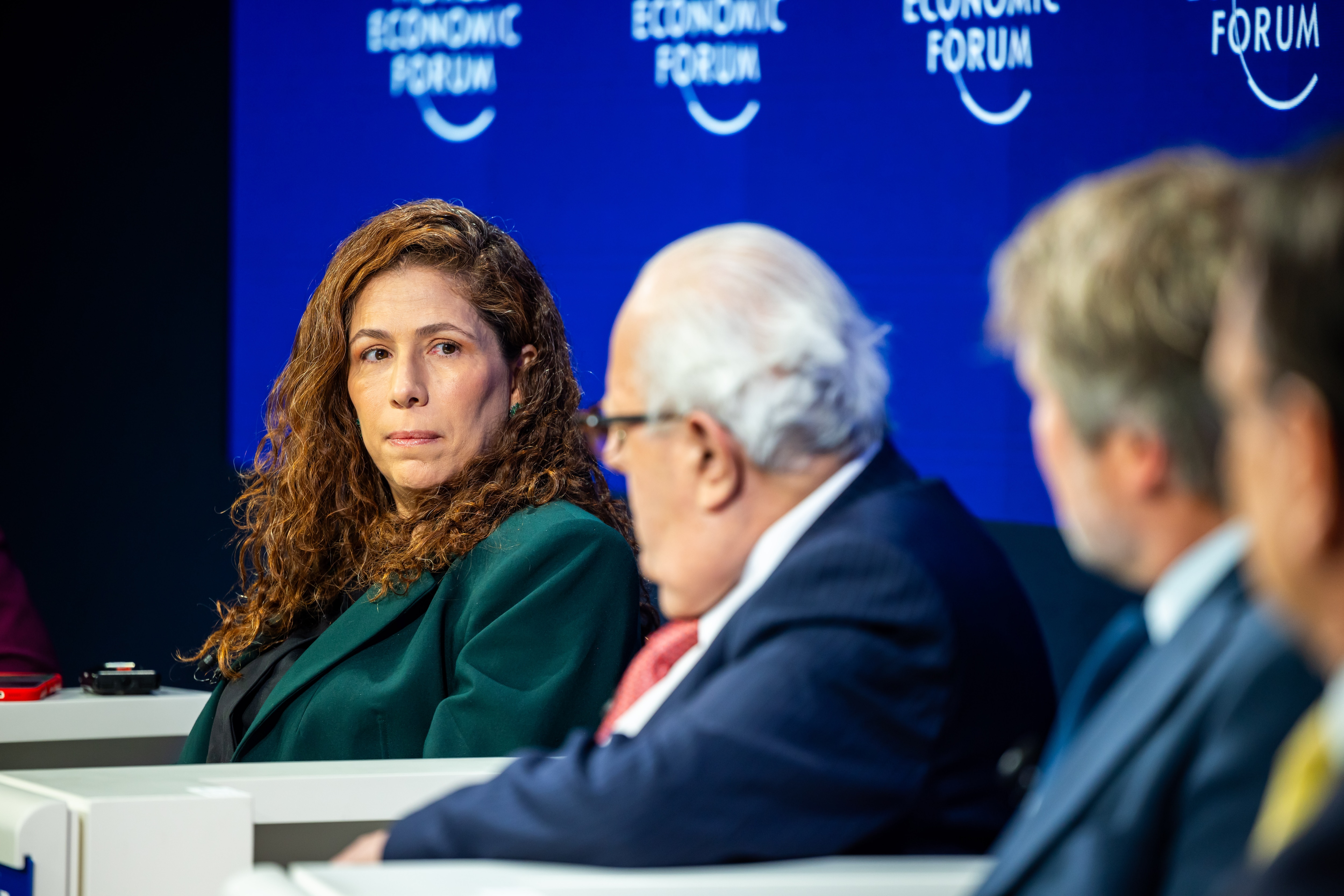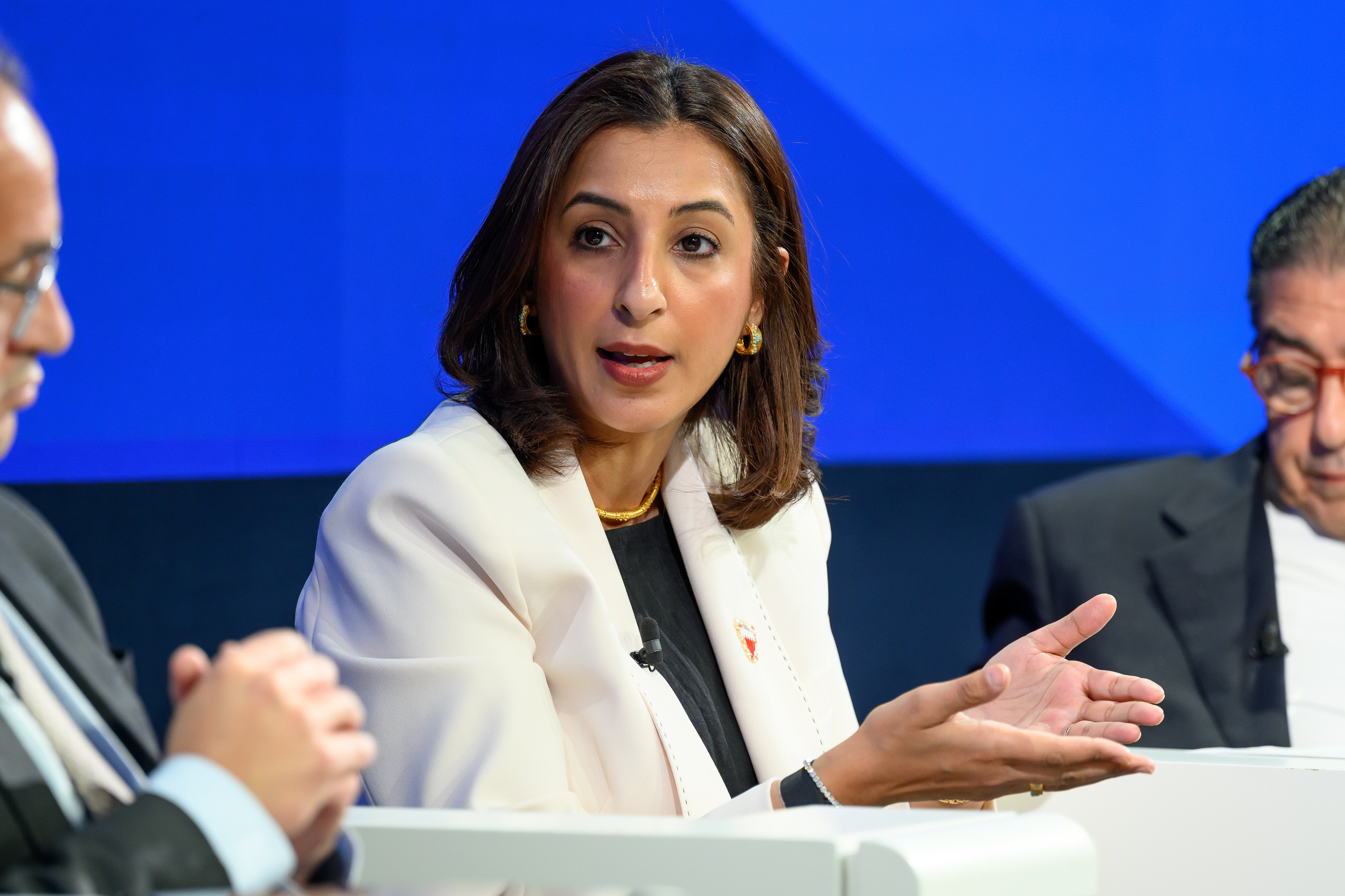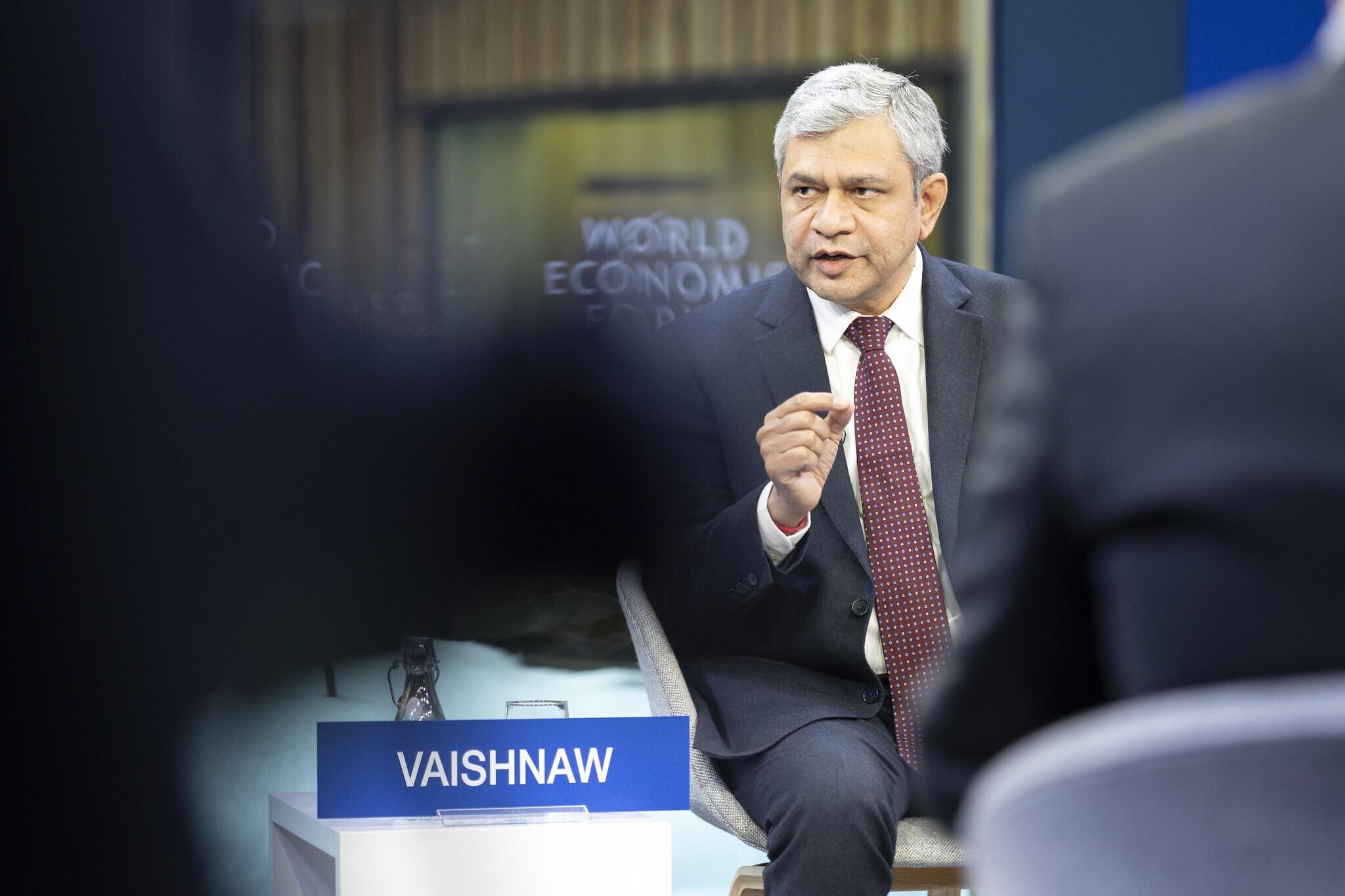Countdown to Davos: what we need to do to scale up access to children’s surgical care

Two billion children lack access to surgical services Image: REUTERS/Zohra Bensemra
- By 2050, Africa will be home to two in five children.
- The continent lacks children's surgical services, meaning many children die from injury, cancer and problems in childbirth and pregnancy.
- At Davos, governments, civil society and the private sector will discuss solutions to accelerating access to children’s surgical services.
Two billion children lack access to surgical services leading to more than 6 million deaths every year. More than 6 million children die from congenital disorders, injury, and cancer. Young adolescent girls, particularly in Africa, die from complications of pregnancy and childbirth.
The lack of access to children’s surgical care is due to an insufficient surgical and anesthesia workforce, and inadequate infrastructure, equipment and supplies. Moreover, factors such as poverty, distance to health facilities, and the lack of awareness about surgical diseases contribute to the staggering 2 billion statistic.
There is some progress towards improving access to children’s surgical services. However, progress is slow, particularly in sub Saharan Africa, where the need is greatest and the health systems are least prepared to care for children in need of surgical services. South Sudan, for example, does not have a pediatric surgeon for a population of 13 million; 42% of which is aged between 0 and 14 years old. Sierra Leone has 1 pediatric surgeon for a population of 7 million; 41% of which is under 15 years old.
This trend in health system unpreparedness for children’s surgical care is worrisome. Africa is the youngest continent. For the majority of the continent, between 40 to 50% of populations are aged between 0 and 14 years old. Soon Africa will have the largest workforce, and most births will happen on the continent. According to UNICEF, by 2050, Africa will be home to 2 in 5 children.
Without addressing children’s surgery as the last mile intervention in child health, Africa will not meet its economic goals, nor will it meet the Sustainable Development Goals by 2030. The situation left as it is will lead to continued deaths, continued disability, and rippling negative effects on SDGs 1, 2, 3, 4, 8, 10, and 16.

Now is the time to act because there is growing compelling evidence on surgical interventions that work and how they compare to other health interventions. Plotting pediatric surgeon density to child health indicators show dramatic improvements in under 5 mortality and neonatal deaths.


Moreover, there is clear evidence demonstrating that children’s surgery is just as cost effective if not more cost effective than other global health interventions: a cleft lip or cleft palate repair is more cost effective than HIV treatment ($47.74/disability adjusted life years (DALY) averted for cleft lip/cleft palate versus $$453.74/DALY for HIV treatment).
The urgent question now is how do we bring children’s surgical care to scale, and how do we move forward?
Whatever we do, we must do it together as a collective. Stakeholders, including government, UN agencies, civil society, academia, philanthropy, and the private sector should work together to implement meaningful change.
Governments as custodians of the health of their populations have critical roles to play in ensuring adequate access to surgical services. They should ensure that the right policies and regulatory mechanisms are in place. They should ensure financial protection when surgical services are accessed.
UN agencies such as the World Health Organization and UNICEF, and organizations such as the Global Initiative for Children’s Surgery will be critical in defining minimum standards as we rapidly scale up access to children’s surgical services.
The private sector has an important role to play in scaling up access to surgical services to save lives. Safe surgery is not possible without adequate equipment and supplies. Surgical equipment and supplies are often too expensive for health systems and patients who frequently pay for supplies out of pocket. Given the sizable potential market, the private sector should explore innovative financing methods to make life saving equipment and supplies more accessible with almost certain financial returns.
Civil society engagement is crucial for greater and sustainable impact. Specifically, leadership by women and girls is important because they often face more barriers when accessing surgical services. A recent study from Western Kenya demonstrated that girls were less likely to access surgical services. Including women and girls as framers of the problem, and active developers of solutions will increase our chances of success and lead to sustainable impact.
Children’s surgical care remains the last mile intervention in child health. We have vaccinated children; treated their malaria, tuberculosis, and HIV. Why not complete the journey and provide surgical services for children to live and thrive and ultimately to achieve SDGs by 2030.
In a few days in Davos, governments, civil society, the private sector, and philanthropy will come together to discuss solutions to accelerating access to children’s surgical services as a key mechanism for achieving SDGs by 2030. We will build a community of partners who will join forces to formulate immediate and long term solutions to accelerate access to children’s surgical care globally.
Don't miss any update on this topic
Create a free account and access your personalized content collection with our latest publications and analyses.
License and Republishing
World Economic Forum articles may be republished in accordance with the Creative Commons Attribution-NonCommercial-NoDerivatives 4.0 International Public License, and in accordance with our Terms of Use.
The views expressed in this article are those of the author alone and not the World Economic Forum.
Stay up to date:
Global Health
Forum Stories newsletter
Bringing you weekly curated insights and analysis on the global issues that matter.
More on Geographies in DepthSee all
Pooja Chhabria
February 4, 2026






